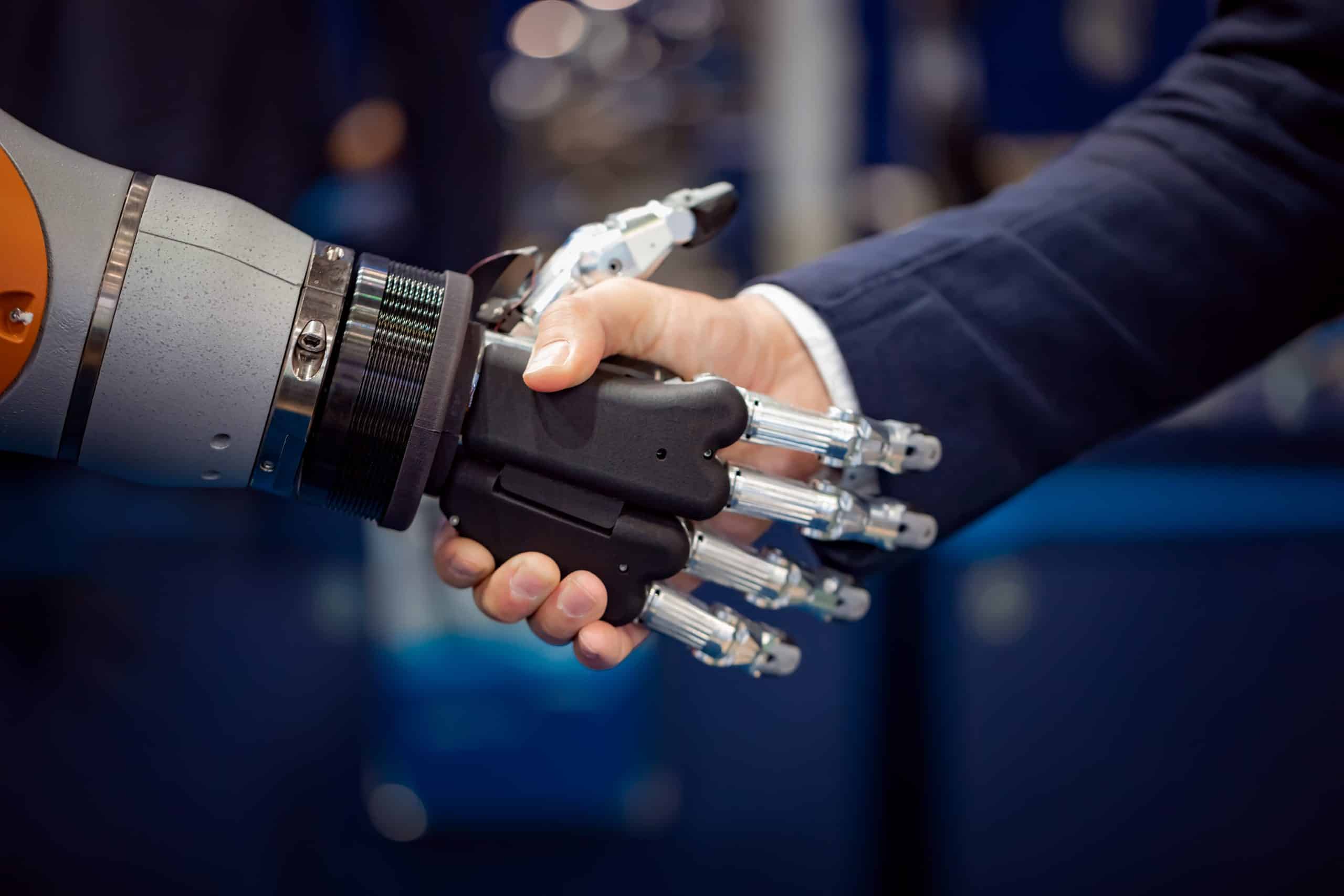How Are Advanced Robotics Transforming Precision Surgery in the UK?

As we delve into the age of advanced technology, the medical world is revolutionizing with the introduction of robotics. These mechanical wonders are not only enhancing efficiency but also demonstrating a significant potential to improve surgical outcomes. In the UK, robotic surgery is gaining momentum, providing surgeons with unparalleled precision in their operations. This article aims to shed light on how robotics are transforming precision surgery in the healthcare sector, focusing mainly on the UK.
The Rise of Robotic Surgery and Its Impact on Patient Care
Robotic surgery, also known as robot-assisted surgery, allows surgeons to perform complex procedures with more control, flexibility and precision than conventional techniques. Robot-assisted surgical systems, such as the da Vinci System, are becoming more prevalent in UK healthcare settings, providing major advances in patient care.
Lire également : Can AI-Enhanced Apps Help Language Learners Master Pronunciation More Effectively?
The da Vinci System, for instance, is a robotic surgical platform with three main components: a surgeon console, patient-side robotic arms, and a high-definition 3D vision system. The surgeon sits at the console and controls the robotic arms, which perform the surgery with high precision. This system offers significant benefits for both patients and surgeons.
For patients, robotic surgery often means less pain and discomfort, fewer complications, shorter hospital stays, and quicker recovery times. Research from scholars in the field suggests that patients who undergo robotic surgery experience fewer postoperative complications than those who undergo traditional surgery.
Sujet a lire : Unlocking surprises: exploring mystery box online offers
For surgeons, robotic systems enhance their capabilities, providing them with superior vision, precision, and control. The 3D vision system offers a magnified, high-resolution view of the surgical field, while the robot’s hands replicate the surgeon’s hand movements, eliminating hand tremors and improving precision.
The Role of Robotic Surgery in the UK’s Healthcare System
The UK’s healthcare system has always been at the forefront of embracing new technologies. Robotic surgery is no exception. From prostate operations to heart valve repair, robots are assisting surgeons in a wide range of procedures, revolutionising healthcare delivery in the UK.
As per the data available on PubMed Central (PMC), a free repository of biomedical and life sciences, the usage of robotic surgical systems in the UK has seen a dramatic increase in the last decade. The number of robotic surgical procedures performed in the UK rose from 1,000 in 2010 to over 5,000 in 2020, indicating a growing acceptance of this technology.
The NHS, the publicly funded healthcare system in the UK, has been instrumental in promoting the use of advanced robotics in surgery. It has invested heavily in acquiring robotic surgical systems and training its surgeons to use them. The NHS Long Term Plan, published in 2019, highlighted the importance of new technologies in improving patient care and outcomes, with a focus on robotic surgery.
Surgeons and Robotic Surgery: A Powerful Combination
While robots are transforming surgery, it’s essential to remember that they are merely tools in the hands of surgeons. These robots do not perform surgery autonomously; instead, they magnify the surgeon’s skills, allowing them to operate with unparalleled precision and control.
Surgeons who have adopted robotic technology often report improvements in their surgical performance. A study published on PubMed indicated that robot-assisted surgery allows surgeons to perform procedures with fewer errors and higher precision compared to traditional methods.
Furthermore, robotic systems can provide surgeons with increased tactile feedback, which can be particularly beneficial in procedures that require fine tissue manipulation. With these advantages, it’s no surprise that many surgeons are advocates of robotic surgery.
Robotic Surgery: A Leap Toward Better Patient Outcomes
Patient outcomes are the ultimate measure of success in any surgical intervention. Robotic surgery has shown promising results in this regard. Studies suggest that patients who undergo robotic surgery are less likely to experience complications post-surgery.
A study published on PMC found that patients who underwent robotic-assisted surgery had a lower risk of postoperative complications compared to those who underwent traditional open surgery. These findings underscore the potential of robotic surgery to improve patient outcomes.
Moreover, patients undergoing robotic surgery often have shorter hospital stays and quicker recovery times, reducing the overall burden on the healthcare system. By enhancing surgical precision and control, robotic surgery is indeed a leap toward better patient outcomes.
In conclusion, the advent of advanced robotics in the UK has transformed the landscape of precision surgery. The combination of skilled surgeons and sophisticated robotic systems is paving the way for safer, more efficient surgical procedures, ultimately leading to better patient outcomes. As the technology continues to evolve, we can expect to see further advances in the field of robotic surgery.
The Integration of AI in Robotic Surgery: The Next Big Leap
In the world of robotic surgery, the next big leap may be the integration of artificial intelligence (AI). AI’s capability of learning and adapting through machine learning can offer numerous possibilities for improving surgical procedures. Artificial intelligence can help surgeons make better-informed decisions by providing real-time data analysis, predictive analytics, and advanced imaging capabilities.
AI, when paired with robotic systems, could further enhance the precision and effectiveness of surgeries. For instance, a study cited on Google Scholar demonstrated how AI could potentially predict the outcome of robotic assisted surgery in real-time. This application could help surgeons make crucial decisions during the procedure, potentially reducing complications and improving patient outcomes.
Moreover, AI could also be used to train surgeons in robot-assisted surgery. A PubMed article highlighted a study where an AI model was used to provide real-time feedback to trainee surgeons. The model was able to identify and correct the trainees’ errors, improving their surgical skills.
Furthermore, AI can be used for more efficient preoperative planning. By analyzing a patient’s medical history and images, AI can help surgeons devise a detailed surgical plan, increasing the chances of a successful operation.
Overall, the integration of AI into robotic surgery holds immense promise. By arming surgeons with advanced decision-making tools and training methods, AI has the potential to improve the efficacy of robot-assisted surgical procedures, leading to better patient outcomes.
The Future of Robotic Surgery in the UK: A Conclusion
The rise of robotic surgery in the UK signifies a new era in the realm of healthcare. The marriage of advanced robotics and skilled surgeons has revolutionised surgical procedures, leading to improved outcomes for patients. With the addition of AI, the future of robotic surgery in the UK appears even brighter.
As we look forward, it is clear that robotic surgery will continue to play a pivotal role in the UK healthcare system. The NHS’s commitment to embracing this technology, as seen in its Long Term Plan, is testament to this fact.
The integration of AI with robotic systems is set to push the horizons of what is achievable in surgery. As the technology continues to mature, we can expect to see more accurate predictions of surgical outcomes, better surgical training methods, and more efficient preoperative planning.
Finally, the rise of robotic surgery is a positive development for patients. Studies on PubMed and Google Scholar suggest that robotic assisted surgery can lead to fewer postoperative complications, shorter hospital stays, and quicker recovery times.
In conclusion, robotic surgery, powered by AI, is poised to revolutionise healthcare in the UK and beyond. It is a shining example of how technology can enhance human capabilities, leading to improved patient outcomes and a brighter future for healthcare. As we continue to advance and refine this technology, the possibilities for what can be achieved in the field of surgery are truly limitless.
